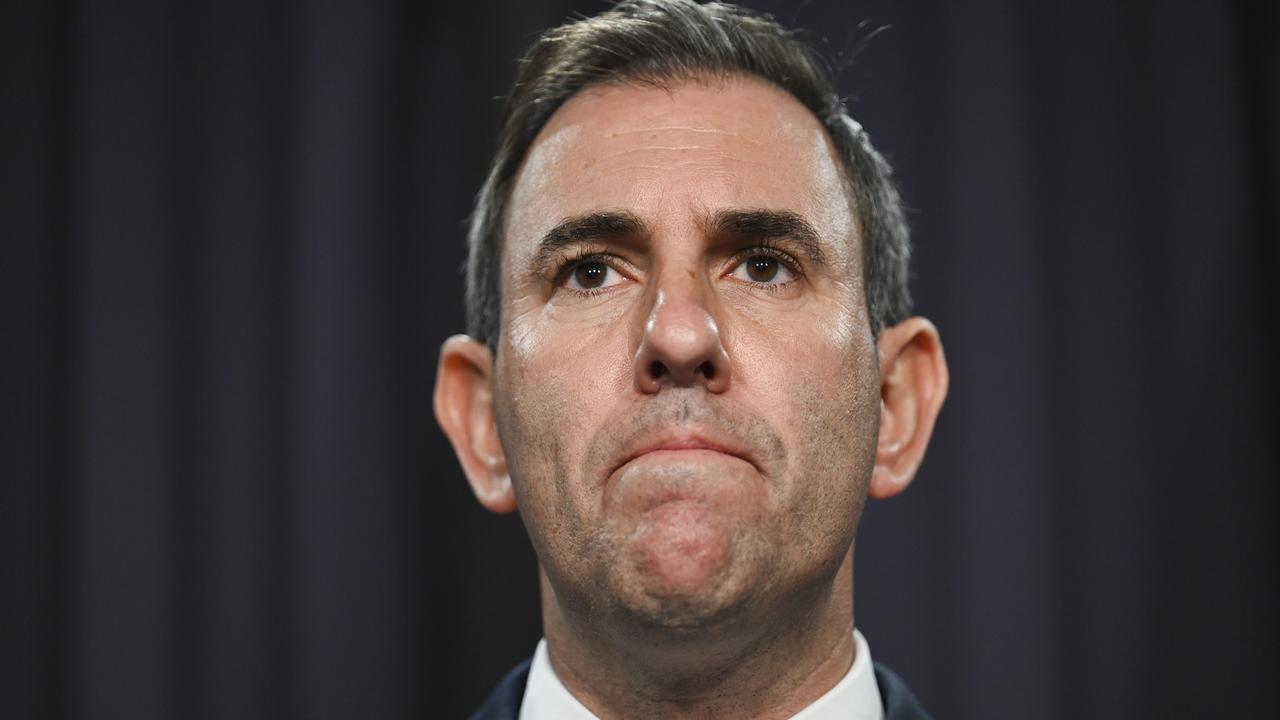Jim Chalmers faces a big dilemma: inflation and growth are both going in the wrong direction


This alone would be enough to illuminate the scale of the economic challenge and the political nightmare facing the Albanese government.
It’s a case of pick your poison.
In economic terms, both are problems of equal magnitude.
But politically, it will be the growth numbers that are more concerning for Labor’s re-election agenda.
While the government may expect that the central bank remains the villain on inflation and interest rates, it is Chalmers that now owns the growth numbers.
This is where the shift in votes is more likely.
He cannot avoid being blamed for the economy’s poor performance.
Economist Chris Richardson’s take on the national accounts is a picture of “maximum pain”.
“There is pain leaking out of every number in those accounts,” he says.
Adjusted for population, its looks even worse.
Foremost is the fact that consumers are now spending virtually 99 cents out of every dollar they earn. Household savings are now down to 0.9 per cent.
It has been decades since Australian households have had to contend with pressures of this scale – with falling living standards and high inflation.
At some point, voters are going to let the government know how they feel about it.
Speaking of which, the RBA governor Michelle Bullock has subtly let Chalmers know what she thinks about his claims to be bringing inflation back into band by Christmas.
It will be underlying inflation rather than headline inflation that will be guiding the bank’s judgement on rates, she told a senate estimates hearing.
Bullock was essentially saying to the Albanese government that it can forget the fantasy about buying an interest-rate cut.
Which leads back to Chalmers’ true ambitions on the economy – it is growth that he appears more concerned about – hence the buckets of budget cash that were thrown around last month.
It is the great unknown about where this is all going to end up that the Treasurer must be losing sleep over. And part of that unknown comes in a few weeks when the tax cuts will start working their way through the economy.
There is little doubt among economists that this will add to the inflation problem.
Chalmers may be prepared to live with this, and the rage of the mortgage holder, if it means that the government can step in to the growth and cost of living picture, even if it means treating the symptoms rather than the cause.
As Richardson points out however, the narrow path both the government and RBA are treading between growth and inflation has now become wafer thin.
That means the politics have become even more precarious and unpredictable for Chalmers.





Jim Chalmers has two different sets of numbers pointing in the wrong and opposite directions. Growth has fallen off a cliff while inflation continues to persist.